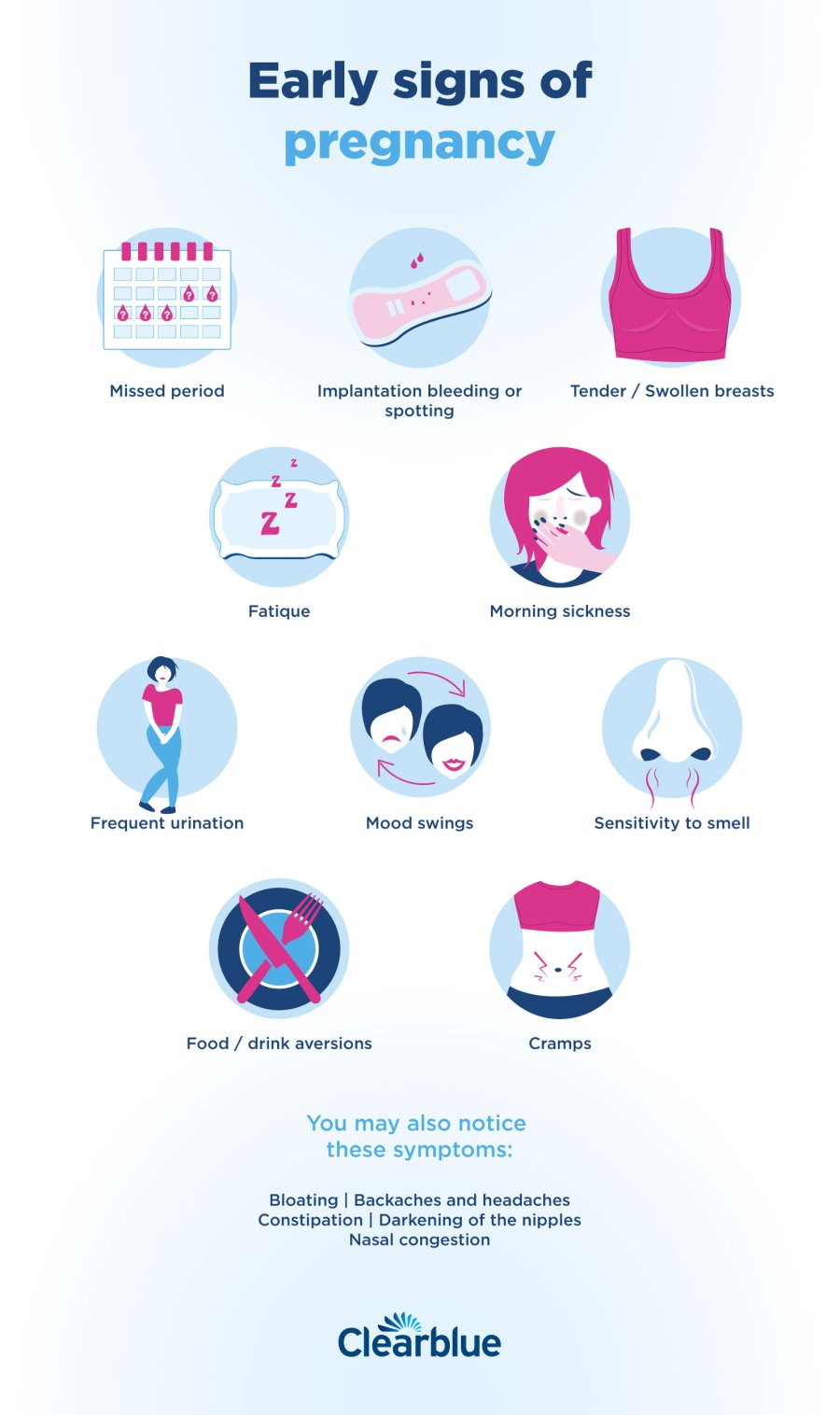
Spotting: An Early Sign of Pregnancy
Spotting, also known as implantation bleeding, is a common early sign of pregnancy that occurs in up to 30% of women. It is caused by the implantation of the fertilized egg into the lining of the uterus, which can cause some light bleeding or spotting. Spotting typically occurs around the time of your expected period, or a few days before or after.
What Does Spotting Look Like?
Spotting is usually lighter than a regular period and may be pink, brown, or red in color. It may last for a few hours or a few days. Spotting is often accompanied by other early pregnancy symptoms, such as:
- Nausea
- Fatigue
- Breast tenderness
- Frequent urination
Is Spotting a Sign of Pregnancy?
Spotting can be a sign of pregnancy, but it is not always the case. Other causes of spotting include:
- Hormonal changes
- Infection
- Injury to the cervix
- Ectopic pregnancy (a pregnancy that occurs outside the uterus)
If you are experiencing spotting and are unsure if you are pregnant, it is important to see your doctor to rule out any other potential causes.
When to See a Doctor
You should see a doctor if you experience any of the following symptoms along with spotting:
- Heavy bleeding
- Severe pain
- Fever
- Chills
- Foul-smelling discharge
These symptoms could indicate a more serious condition, such as an ectopic pregnancy or an infection.
Treatment for Spotting
There is no specific treatment for spotting during pregnancy. However, your doctor may recommend:
- Rest
- Avoiding strenuous activity
- Taking pain medication, such as ibuprofen or acetaminophen
- Using a heating pad to relieve pain
Preventing Spotting
There is no way to prevent spotting during pregnancy. However, you can reduce your risk of developing other complications by:
- Getting regular prenatal care
- Eating a healthy diet
- Exercising regularly
- Avoiding smoking and alcohol
Spotting and Pregnancy Outcome
Most women who experience spotting during pregnancy go on to have a healthy pregnancy and baby. However, spotting can be a sign of certain complications, such as:
- Miscarriage
- Ectopic pregnancy
- Placental abruption
If you are experiencing spotting during pregnancy, it is important to see your doctor to rule out any potential complications.
Here are some additional tips for managing spotting during pregnancy:
- Use panty liners to absorb any bleeding.
- Change your panty liners frequently to prevent infection.
- Avoid using tampons, as they can increase your risk of infection.
- Rest when you are feeling tired.
- Avoid strenuous activity.
- Take pain medication, such as ibuprofen or acetaminophen, if you are experiencing pain.
- Use a heating pad to relieve pain.
- See your doctor if you experience any of the following symptoms along with spotting:
- Heavy bleeding
- Severe pain
- Fever
- Chills
- Foul-smelling discharge